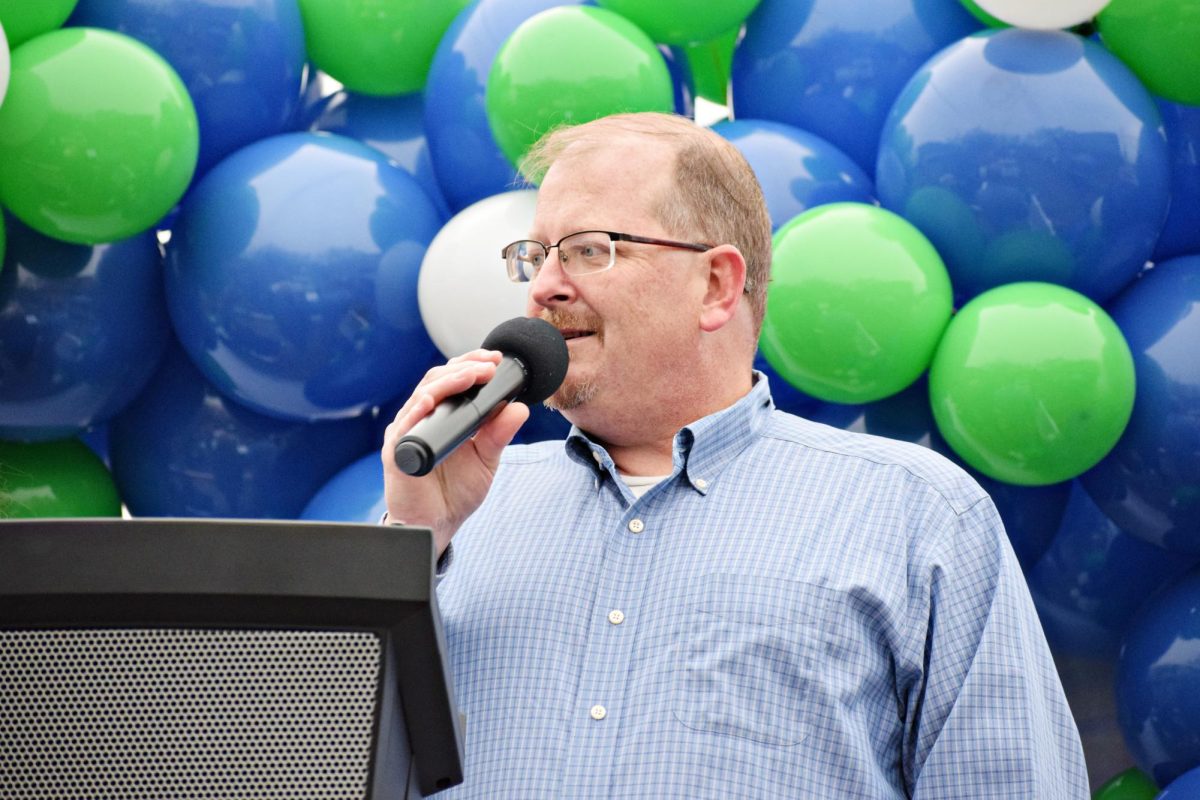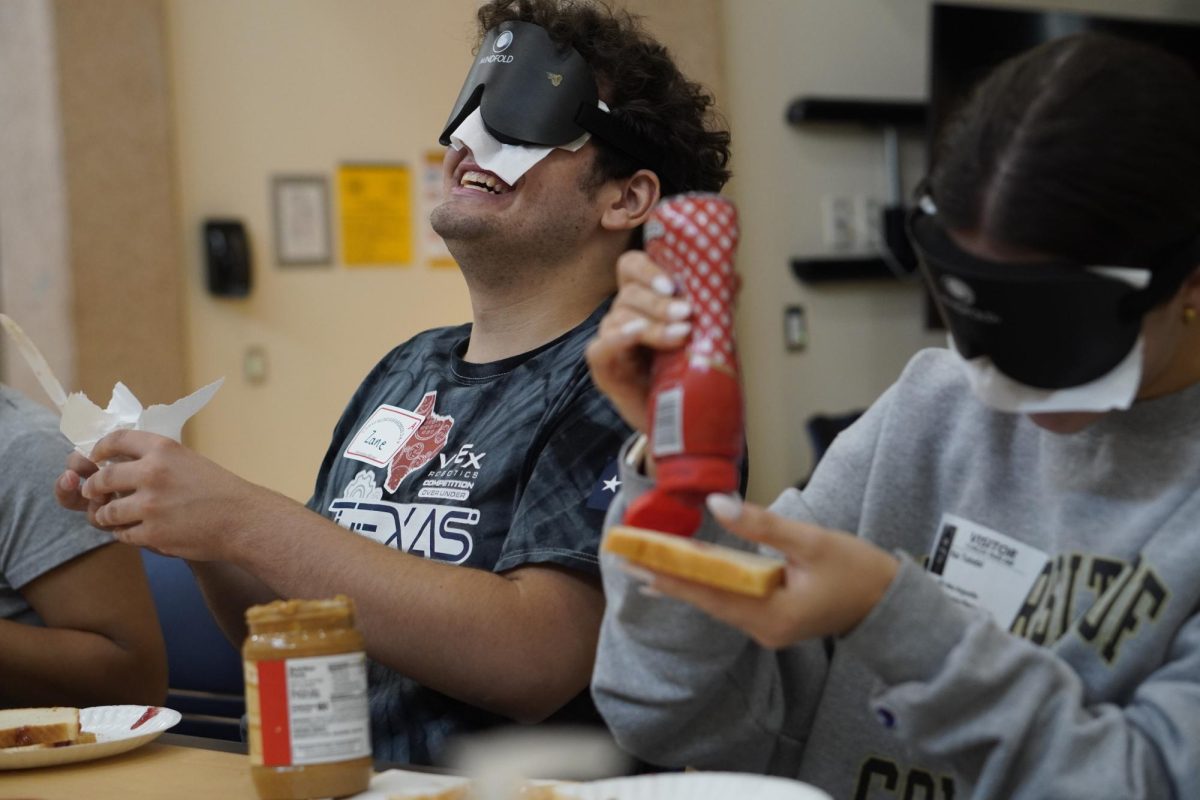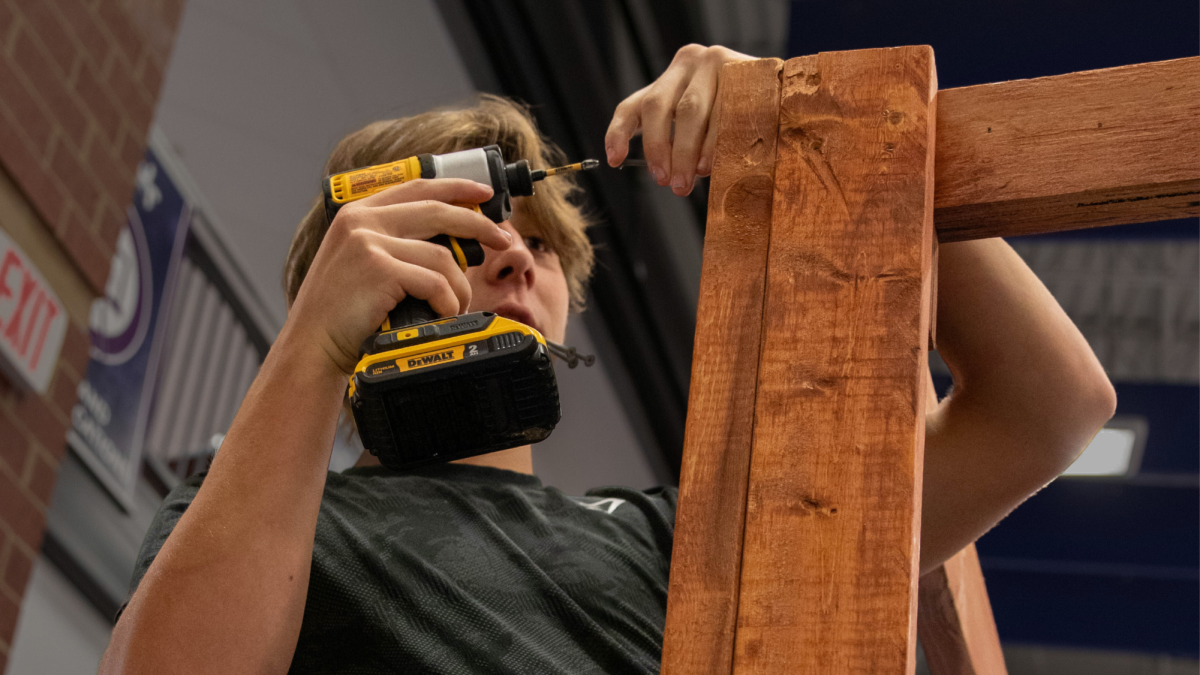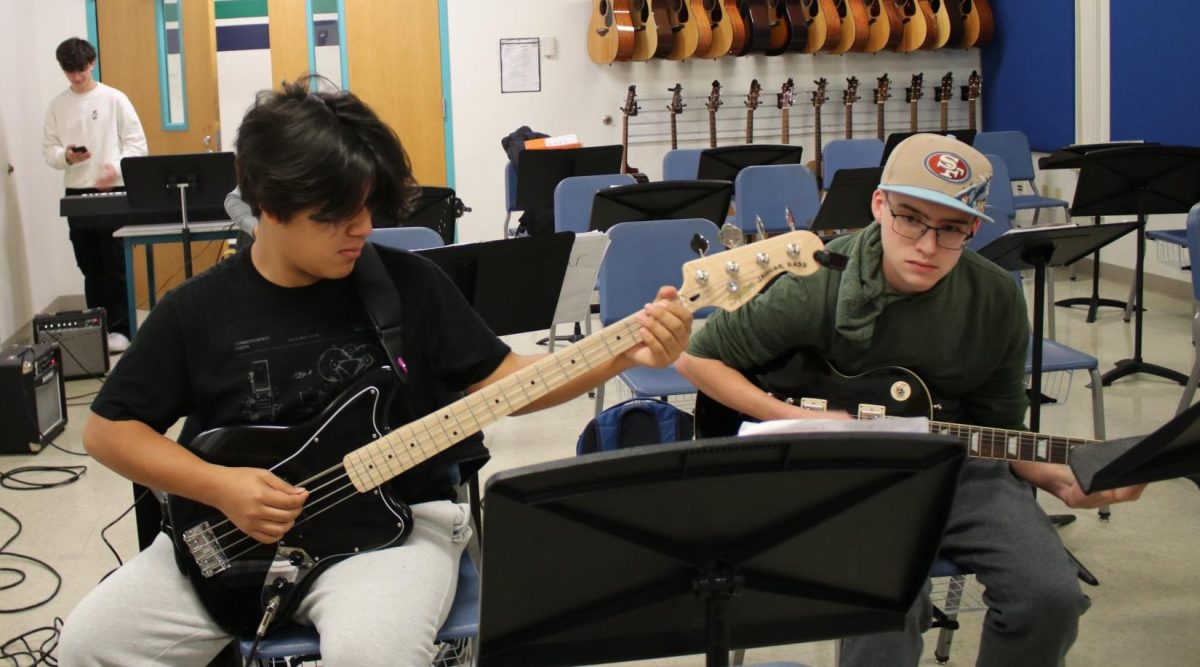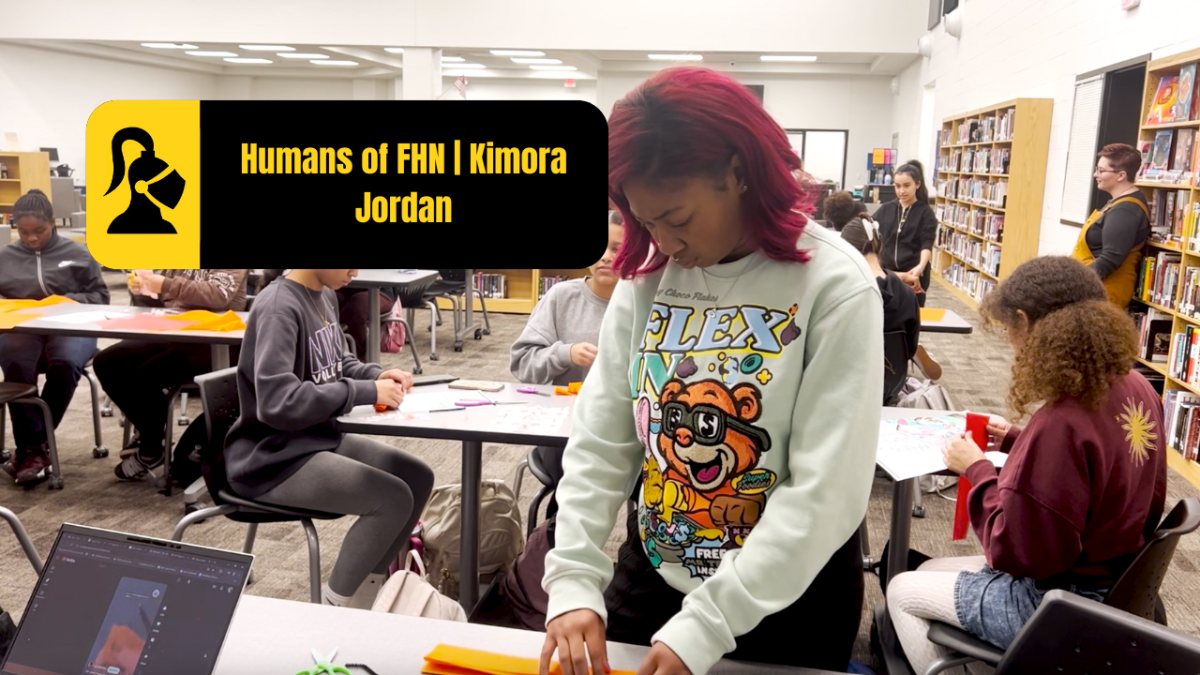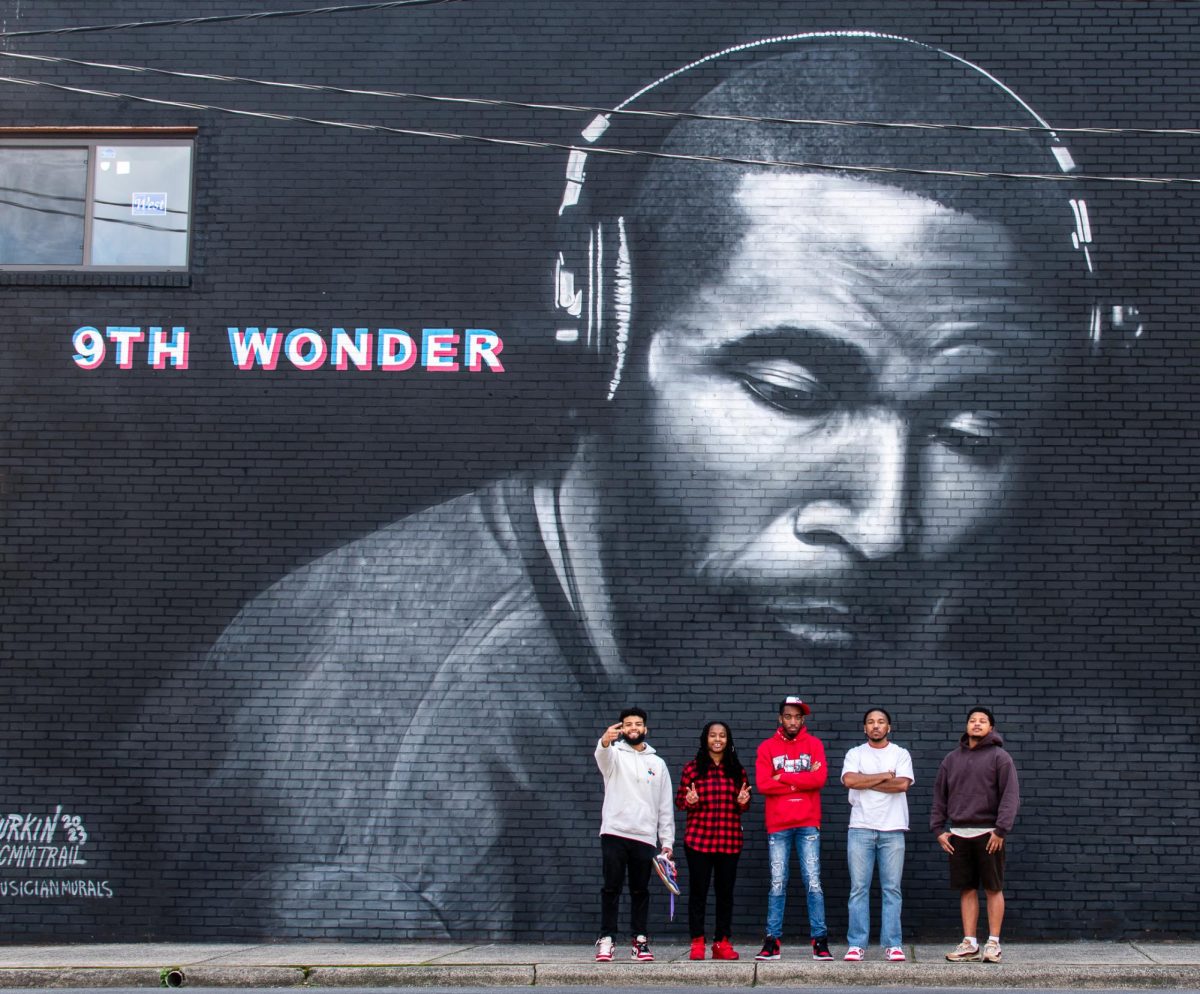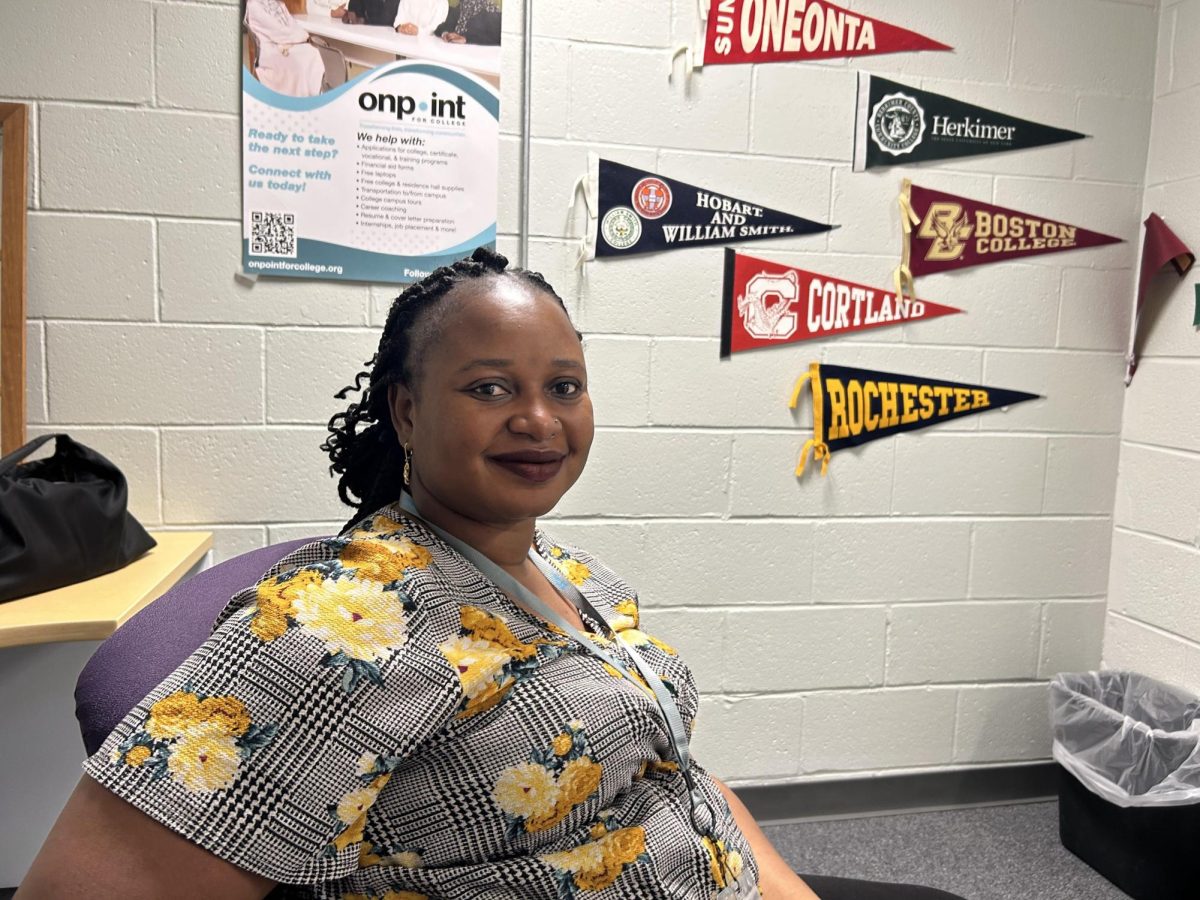Class has been dismissed for almost half an hour, but a handful of students are still sticking around. They stand at the front of the Carswell classroom blocking one of the doors as they pepper their professor with questions. He doesn’t mind the barrage, he rather enjoys it as his students are eager to learn more about his expertise, but there’s one thing Patrick Douthit’s students don’t seem to understand.
“Jay-Z is the best rapper alive,” Douthit, better known as Grammy-award-winning producer 9th Wonder, says repeatedly.
The students keep listing names. “What about Kendrick? Cole? You gotta have Nipsey in your top-five.” The answer never sways. They try, but it’s hard to argue with someone like 9th Wonder, who is considered one of the best producers in the industry and has a mental catalog full of rhymes, samples and general hip-hop history.
The after-class conversations aren’t always reminiscent of the school lunch table, but they are just as honest and entertaining. Whether it’s a continuation of the discussion from their “Black Cinema and Hip Hop Culture” course or a demonstration of production techniques, the conversations between the students and their professor are genuine.
The teaching isn’t constrained by the lecture hall walls either. The other classroom is in the studio, where 9th Wonder teaches a small group of these students to become sharp samplers, rhythmic arrangers and complementary producers to mold sonic killers — Salem Assassins.
***
In October 2022, during 9th Wonder’s first semester teaching at Wake Forest, the professor took his “History of Hip Hop” class on a field trip.
Instead of sitting through a two-and-a-half-hour-long lecture in Tribble Hall, the class walked over to Wait Chapel to see their professor speak with Dr. Corey D.B. Walker, director of the African-American Studies program, about jazz composer Charles Mingus. After the discussion, the Grammy-nominated Mingus Big Band would perform the legendary bassist’s work.
For some students in the class, that night transformed their entire relationship with music. But it wasn’t just because of the music they heard.
On the walk back to Tribble, Cameron French (‘23, ‘24) and Maurice Cowley (‘23) had an idea.
The two friends had both been making beats since high school and started to take a more serious interest in producing music during college, especially when they enrolled in 9th Wonder’s course. They were only a few steps away from one of the most respected ears in the industry; they weren’t going to pass this opportunity up.
“F*** it, let’s just show him these samples and beats we’ve been working on,” French remembers saying. “Might as well, I mean, freedoms.php it, what’s he gonna say? He was about to get in his car because he always parked right in front of Tribble, so we were between him and his vehicle, and we were like ‘Hey, uh, by the way.’”
Carrington Newsome (‘23) quickly grabbed a speaker out of her car and connected it to French’s phone. To their surprise, the Grammy-award-winning producer liked what he heard and invited French, Cowley, Newsome, Dimarvin Puerto (‘24), Finn Siemion (‘25) and DJ Johnson (‘26) to join him at Black Smoke Studios in Winston-Salem to watch him chop samples of their choosing.
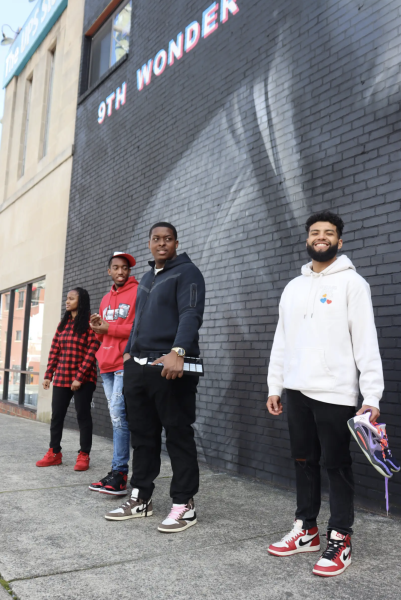
(Isa)
The day before the six of them were set to watch 9th Wonder produce, Johnson purchased a used drum pad machine for $400. They were in the studio until after midnight. He didn’t touch it at all.
“I kid you not, this is all we heard.” French starts beating the table as if it were an imaginary drum pad machine. “That’s it. Then he pressed a button, and it was a beat. I swear to God, you wouldn’t know when he did none of the work. It was just a beat.”
The whole process took five minutes. Six, tops, according to Newsome. They were mesmerized.
Each inspired, they got to work as soon as they got back, opening up Ableton and FL Studios, breaking in their MIDI keyboards and drum pad machines and scouring the internet for possible samples. They decided to form a group, calling themselves the Salem Assassins (Puerto’s idea of 9th’s Disciples was quickly shut down) and start collaborating. Puerto would be the “solemn” sample finder; French, Cowley, Siemion and Johnson would be the producers and Newsome would be the singer-songwriter.
Over the next 18 months, three more people would become Salem Assassins: El Awkward (‘25), a producer and on-campus DJ, Kobe Mccullough (‘24) — a rapper who jokes that he is only in the group because he has a car and Jada Douthit, 9th Wonder’s daughter and a sophomore at Winston-Salem State University. Besides the differing sounds and inspirations, each person brings a sense of friendly competition and constructive criticism to the group.
“I love the fact that it’s a producer group that we got,” Cowley said. “Because if we were doing this by ourselves, you wouldn’t necessarily have that checks and balances system. You know, Finn might send a beat in the chat, and it’ll be crazy; or DJ might send a beat in the chat, it’ll be crazy, CFrench, Kobe send a crazy rhyme, Carrington might put a crazy verse on it. I take a look at that and I’m like, ‘Okay, I gotta come just as hard.’”
Looking back on that evening, 9th Wonder remembers liking what he heard from the novice producers, but it was their attitude toward the lost art of crate digging, or physically finding samples at a record shop and the appreciation for hip-hop culture.
“That’s probably the biggest thing about them that I thought was dope was because they still wanted to explore this,” 9th Wonder said. “You just don’t find that often…Anyone can hand me a CD and say ‘Check me out, am I good?’ Or ‘Check me out, do you like my music?’ But if someone comes up to me and says “I want to learn more about this,’ I’m more in tune to deal with that than you just trying to be put on.”
9th Wonder has most certainly returned the favor, inviting the Salem Assassins to his studio in Raleigh — Jamla Records at Bright Lady Studios — multiple times. They have connected with other Jamla Record (9th Wonder’s label) artists, and have been featured on the Fasss Auntie Lounge, a near-nightly DJ set by 9th Wonder that is live-streamed on Instagram.
“After that first studio session, I’ve noticed huge improvements in beat-making from CFrench, DJ the DJ, Finesse,” Cowley said. “I think it’s just neat to see the influence that these guys have, the OGs like Khrysis and 9th Wonder. I think these guys are really for the community. Because that’s what hip-hop is all about. It’s about giving back to the youth, pushing it forward, protecting our communities and protecting the culture, right? For 9th to just be around us while we’re making beats, I think that also brings out a side of creativity that you may not have unlocked.”
***
When it comes to the creation of hip-hop and the surrounding culture, many attribute the start to an August 1973 block party thrown by DJ Kool Herc in the Bronx, N.Y.
Using two turntables and a mixer, Herc spun records across genres — funk, soul, disco, whatever, as long as there was a percussion break — switching between the records to elongate the percussive breaks, allow more time for dancing and rhyme over the beat. The DJ technique was noticed across the Bronx and eventually spread across the five boroughs.
The Sugarhill Gang popularized the use of rapping on their 1979 song “Rapper’s Delight” by introducing a simplistic rhythmic flow and A-A-B-B rhyme scheme. This style was used by other groups such as Run-D.M.C. and Grandmaster Flash and the Furious Five, creating an era now referred to as “old school hip hop.”

As the ’80s brought about newer and more accessible technology, like the Roland TR-808 drum machine or Akai MPC sampler, production began to include original drum patterns and more complex sample combinations. The beats weren’t the only part of hip-hop evolving. In the late ’80s, rap started its shift from fun, positive, celebratory rhymes to a more aggressive and hard-edged sound, reflecting the socioeconomic realities some artists faced. Lyrics became more metaphorical and rhyme schemes more intricate.
It was around this time that 9th Wonder, still Patrick, was introduced to hip-hop in Winston-Salem, N.C. Growing up, Douthit’s parents listened mostly to gospel music, and Douthit’s uncle listened to R&B and soul. As a middle schooler, he would go to his friend Randy Kilgore’s house off Reynolds Park Road and listen to Eric B. and Rakim in the basement.
While in the eighth grade at Hill Middle School, Douthit was recruited by Dr. Ernest Wade, Wake Forest’s Office of Minority Affairs director, to join a newly created college preparatory program called Project Ensure. The premise was to encourage talented Black high school students from the Winston-Salem area with their secondary schooling by introducing the students to the college environment during the summer months.
In 1991, Douthit was a rising junior at Glenn High School, and could already play half a dozen instruments. For this summer of Project Ensure, Douthit was paired with another Winston-Salem native as his mentor — Dr. Nate French (‘93). Today, French is the executive director of First in the Forest, director of the Magnolia Scholars program, associate professor of communication at Wake Forest and the father of Cameron French.
Nate French recalled his role being similar to that of a camp counselor rather than a college prep mentor. He joined the students for meals, acting as the RA and helping with the daily group activity, but he still believes the program created a positive impact on the students.
After the summer program was over, Douthit and Nate French would hear updates about each other through mutual friends, but eventually grew apart as they entered different stages of life. Over two decades later, the mentor-mentee pairing would reconnect, again on the Reynolda campus.
“I’m sitting in my office and I get an email that’s asking me if I’ll come to his speech that night. It’s just signed ‘9th Wonder’ and I’m like…” French gives a confused look as he tries to figure out who sent him this message. “This was before [he taught at Wake Forest], and I remember going to that speech. What was amazing was I walked into that speech and I saw Ron and Rita Kilgore — my best friend was Ronald Kilgore — so I saw his parents there. I’m asking why they’re on campus and they say ‘Remember Patrick?’ And I’m like, that’s who he is!”
9th Wonder had come to give a speech in Carswell’s Annenberg Auditorium about his career, both as a musician and as a college professor. After achieving success as a part of Little Brother and working with Jay-Z, Destiny’s Child and Mary J. Blige (the latter collaboration earned the producer a Grammy on the 2005 record “The Breakthrough”), 9th Wonder returned to North Carolina Central University as an artist in residence to teach the history of hip hop and music production courses. He would eventually join the faculty at Duke University (his favorite college basketball team), Harvard University and Long Island University before coming back to Wake Forest.
Nate French believes his hands-on and engaging teaching of hip hop is something that not just the Salem Assassins can appreciate, but all of 9th Wonder’s students.
“What I see in his lectures is a desire to make sure that students understand that hip hop didn’t start today, that the music didn’t start today…He brings that together and kind of ties it together in a space of community and a space of learning.”
***
A professional music career, let alone mainstream success, is never a given. The hours upon hours (upon hours and even more hours) that must be put into the craft make it so that success, no matter how large or small, can’t be accidental. At some point in every artist’s career, there comes a time when a decision about what they want to accomplish with their art must be made. What do they want to gain from this opportunity? Is it purely a hobby and creative outlet? Or are there messages and feelings they want — need to share?
“I just want to make sure we execute,” Newsome said. “Do everything we can at the time, with the stuff we have. We can’t let this opportunity — all of us together, our connections here, the blessing we have to be able to go to Jamla [Records] — we can’t just let that slide between our fingertips.”

When the 2024-25 academic year begins, only four of the nine members will still be on campus. Two members of the group have already started their careers — Cowley lives in Detroit working as a performance engineer for General Motors and Newsome is getting ready to begin dental school at Southern Illinois University — while three more members — Cameron French, Mccullough and Puerto — are set to graduate from Wake Forest this coming May.
Of course, graduation does not mark the end of their musical pursuits, individually or with those back in Winston-Salem. Both Cowley and Newsome still spend their free time crate digging, chopping samples and writing lyrics, and both are still active in the Salem Assassins group chat. Mccullough knows that he will continue writing his “playa poetry” post-graduation and Cameron French is always going to keep music a part of his life, whether it’s playing the drums in front of others or pressing the drum pad in his room.
“It’s just one of those things,” Cowley said over the phone. “If you really got passion for it, and if it’s really something that you want to do, you’ll make time for it.”
Siemion, a junior minoring in music, has tried to make producing a part of his daily routine even as he is currently studying abroad in London.
Only a sophomore, Johnson understands the struggle that Cowley, Newsome and the other soon-to-be graduates face. Johnson plays offensive line for the Wake Forest football team and gigs as a DJ at on and off-campus parties and events.
“I’ve always had to choose my whole, entire life between going to do football and going to do music,” Johnson said. “It’s always been like, ‘Oh, I gotta get time here, get time there.’ But, I’ve come to the point where I’m done choosing. I’m gonna do both. Whatever God has in store for me, wherever life is going to take me, that’s what’s gonna be.”
Johnson’s confidence that it will all work out is a shared feeling amongst the group. As Mccullough, a psychology major, points out, none of the Salem Assassins are trying to “make it out” with music. Puerto plans to attend law school. Siemion would like to work behind the scenes in the industry. Jada Douthit wants to be a sports analyst. It’s the fact that they are all making music together for the love of making music that makes being in the group so fun.
As a group, the Salem Assassins have already decided what they are going to do with this opportunity. Besides recording and releasing a multi-track record, which is in production, there’s one other project that everyone has in mind — leaving a legacy. More specifically, creating a space for other Black Wake Forest students to be as creative and expressive as they want.
“That’s the goal for me,” Puerto said. “Being able to support these amazing minds. I can be someone from the outside as long as I’m in the space, but if they could do what they could do, and I can help with that, then why not?”

Jada Douthit has been able to lay the groundwork for something similar at Winston-Salem State after noticing a lack of music clubs on campus outside of the marching band, Red Sea of Sound. Earlier in the spring semester, she and her friend, Taimullah Moore, founded the Watchers Soundwave Hip-Hop Club.
“I wanted to create an environment where people can really enjoy music, especially hip-hop because that’s what I know most about,” Jada Douthit said. “I’m hoping this idea spreads to other HBCUs because it’s all Black people — we created hip-hop. So why wouldn’t we have a space that we created on campus?”
9th Wonder can see the good intentions immediately and believes that all of the Salem Assassins are on a path to accomplishing their collective goals.
“‘Take advantage’ is a loose term; some people see me and see what they can get out of me, not what they can learn from me. It’s two different things. For them, they want to not only learn something from me but leave something and pay it forward for somebody else. There may be a situation where down the road, somebody’s gonna look at them — or somebody might look at them now — and say ‘You had a class with that dude? You serious?”
***
Wonder does not believe that people get to decide their legacy and how they are remembered. That burden lies in the hands of everyone else. Whenever he drives past the corner of Sixth and Liberty Streets, he sees a two-story mural of himself, a proud homage to one of Winston-Salem’s finest sons. Seeing it is still a surreal experience.
“When they put it up [in the summer of 2023], they asked me, ‘Did I want a ceremony? Did I want the city to be here?’ Nope. I didn’t want any of that, you know what I mean? I didn’t want none of that. Some people want that attention, man, I don’t. I don’t, because I never expected to get it.”
The mural is courtesy of the North Carolina Musician Murals Trail, a project created by artist Scott Nurkin to paint notable Tar Heel musicians in their hometown. It’s a mixture of commemoration and education, where sonic trailblazers like John Coltrane (Hamlet, N.C.), Nina Simone (Tryon, N.C.) and Thelonious Monk (Rocky Mount, N.C.) are appropriately honored with larger-than-life depictions. So when the Chapel Hill-based artist started considering a mural in Winston-Salem, there was no question about who would be painted next.
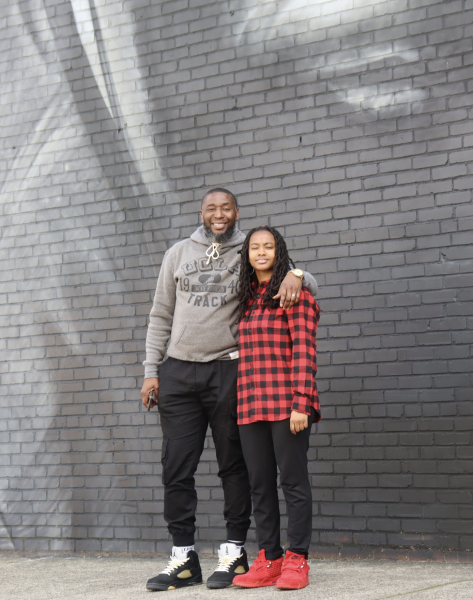
“The man is prolific and that’s inspiring to me,” Nurkin said. “I don’t do a lot of musicians that are as prolific as 9th.”
While 9th and I speak at the mural, a fan in his 20s recognizes 9th Wonder from across the street. The fan walks over to introduce himself, the two snap a photo. Even after 20 years in the game, 9th Wonder admits he still isn’t used to those kinds of interactions.
As the fan walks away, Patrick Douthit looks across the street at his daughter Jada. She smiles from ear to ear as she stands in front of her father’s mural. He smiles just as wide. That’s the legacy he cares about more.
This story was originally published on Old Gold & Black on April 29, 2024.


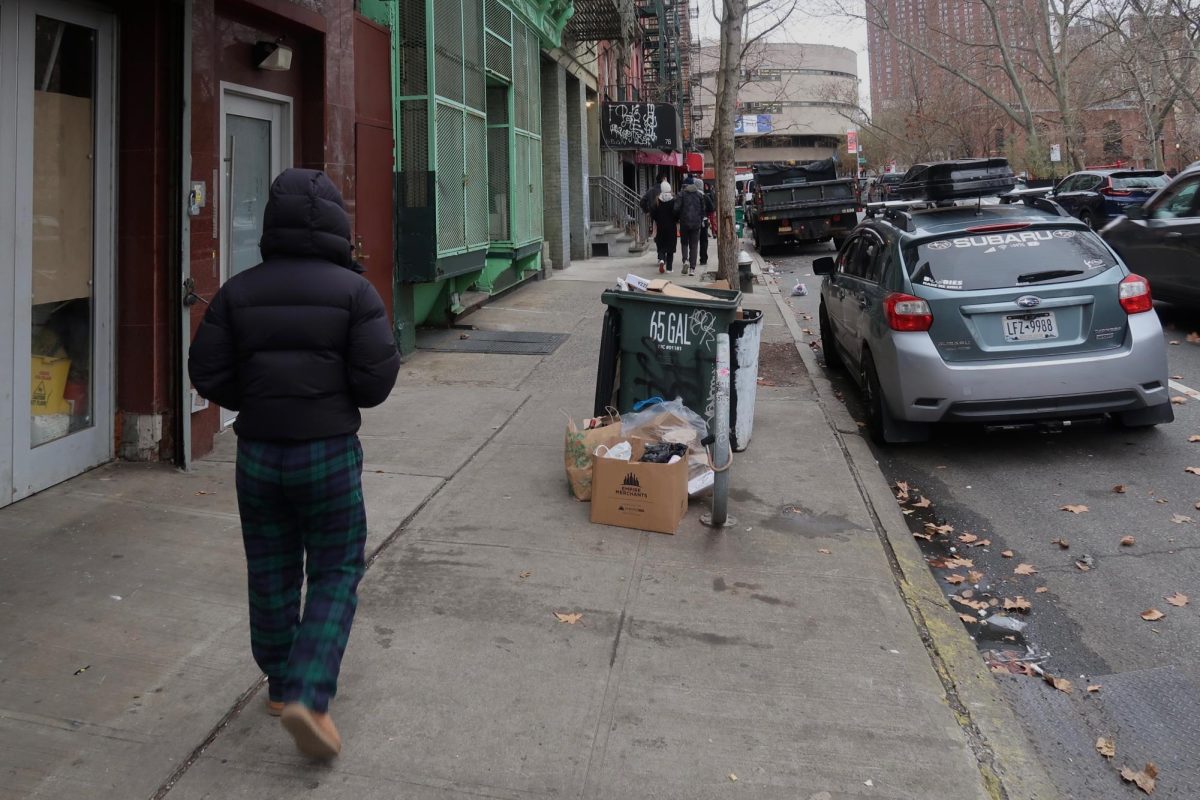
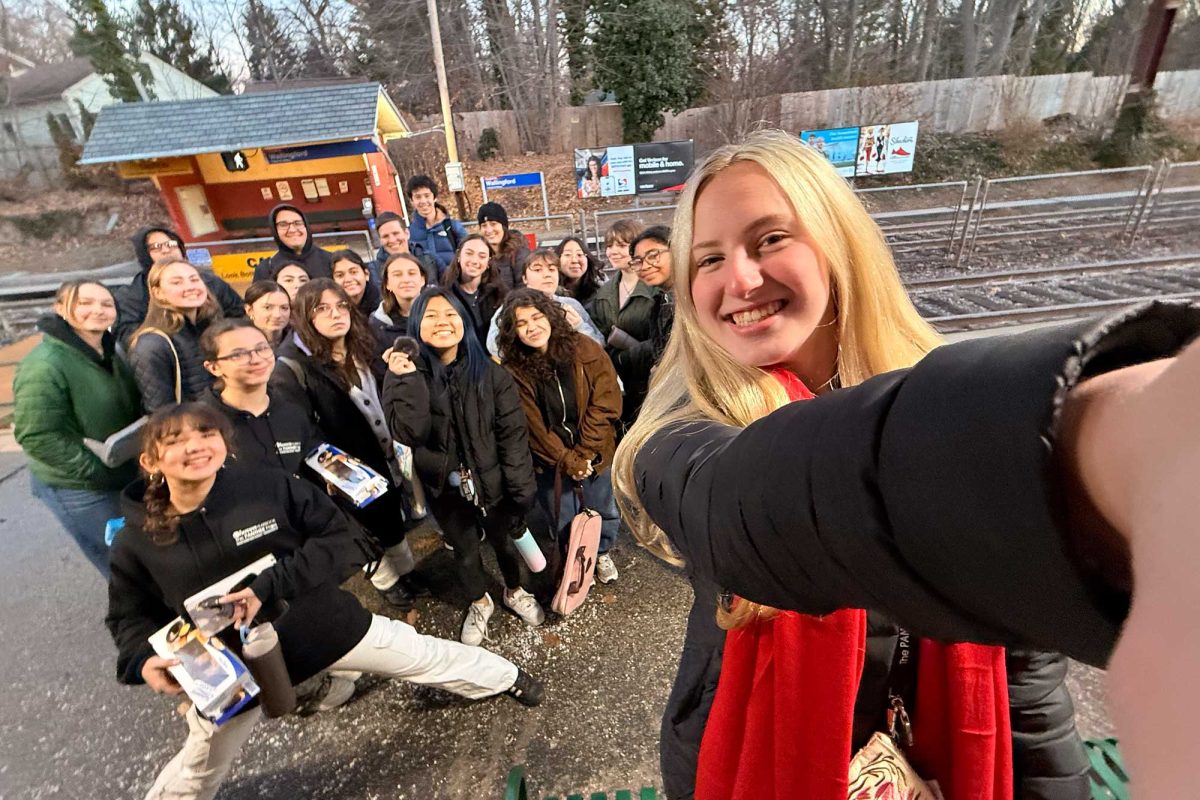



![Delicately placing the string to form the shape of a cornucopia, seniors Haley Burton and Avery Nelson create the November arrangement for the Flower of the Month Club. This club is led by Advanced Floral Design Students and provides a monthly arrangement to community members who subscribe to receive them. “I think flower of the month club is a really impactful way to show your loved ones ‘hey I really care about you,’ or even if they’re just for yourself, they’re a little pick-me-up throughout the month that [say] ‘I’m doing ok, and these flowers make my day a little bit brighter,” Nelson said. “I like giving people flowers because people value the flowers more and they value themselves more.”](https://bestofsno.com/wp-content/uploads/2025/01/Ava-Holmes-3-edit.jpg)


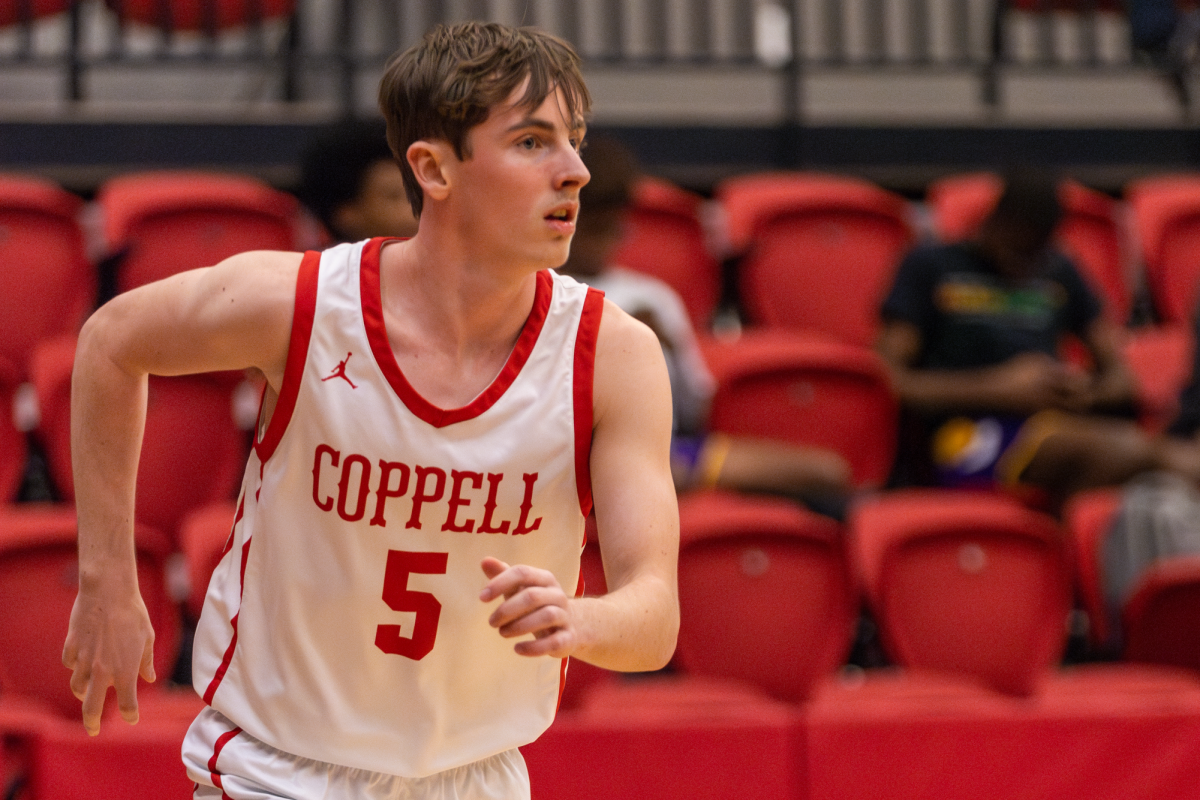
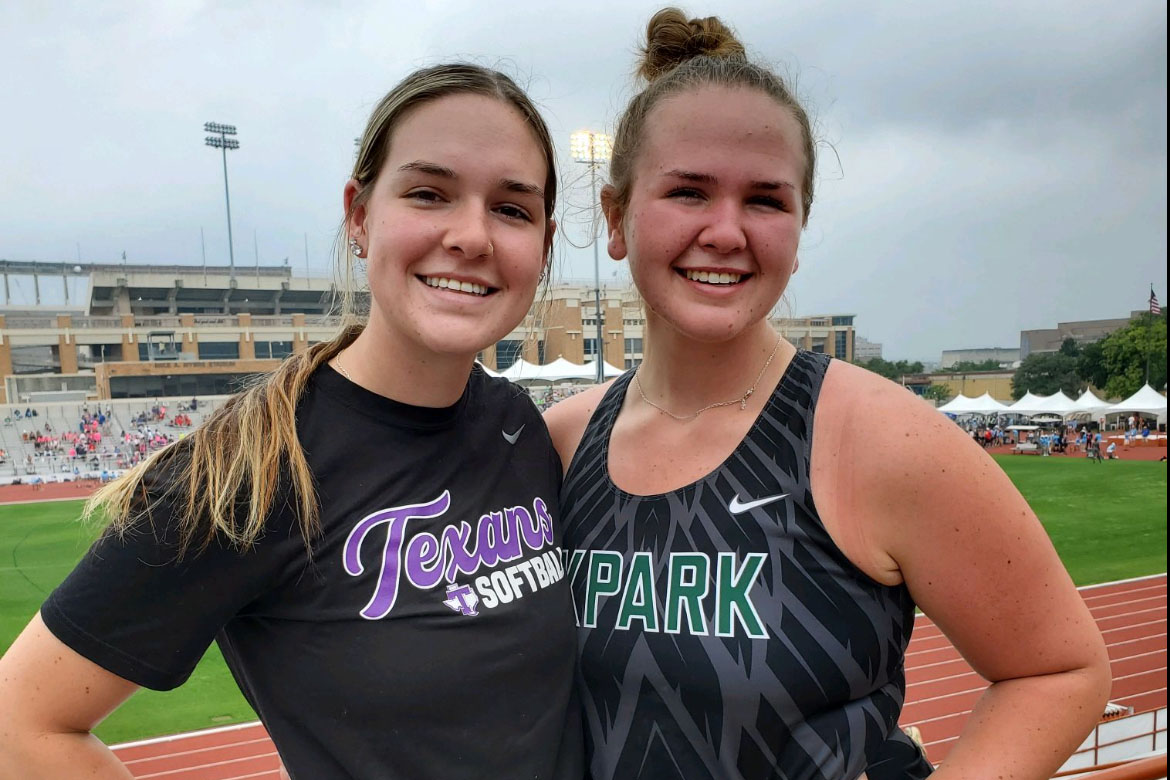
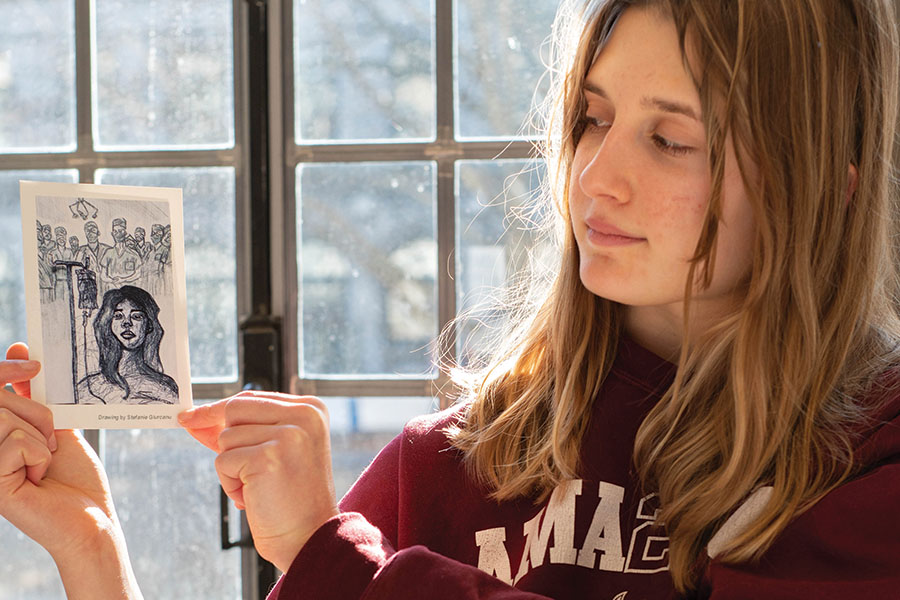
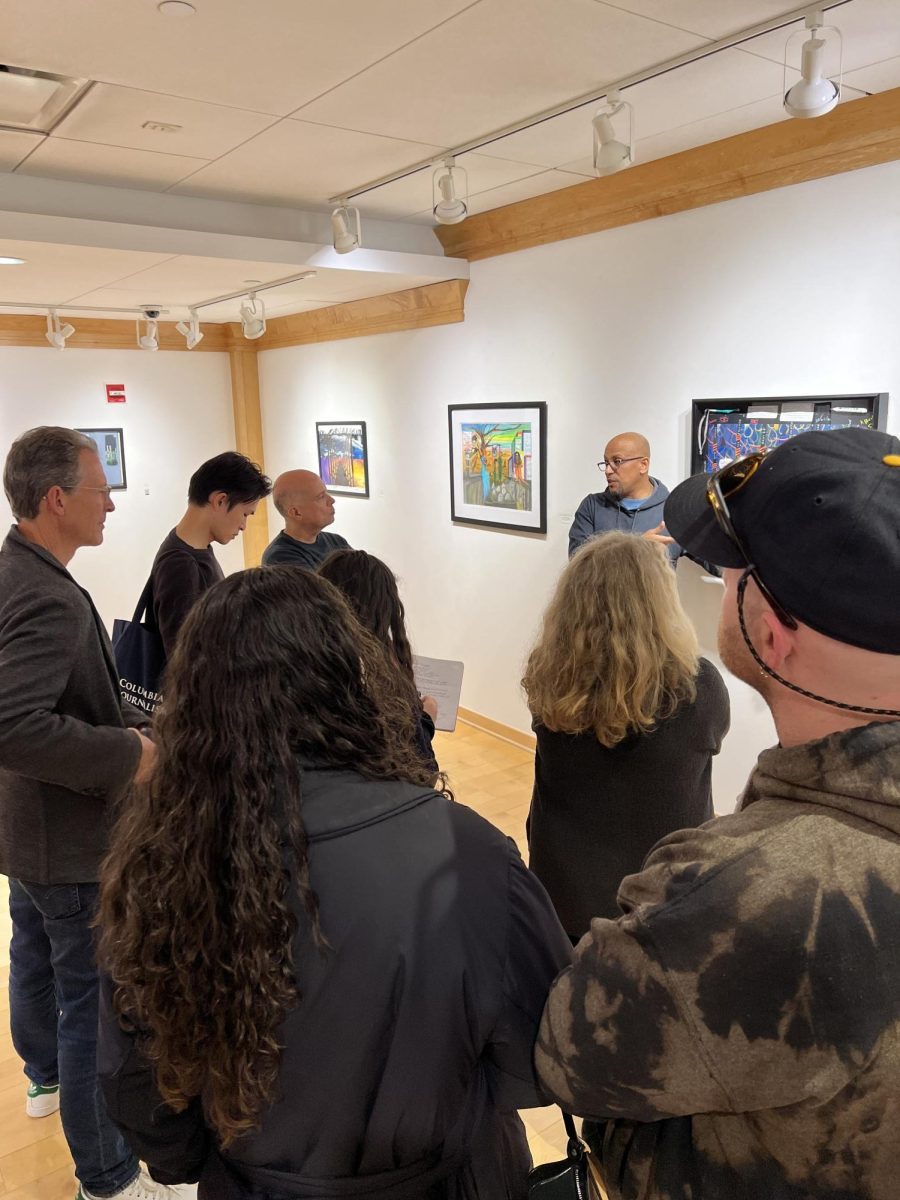
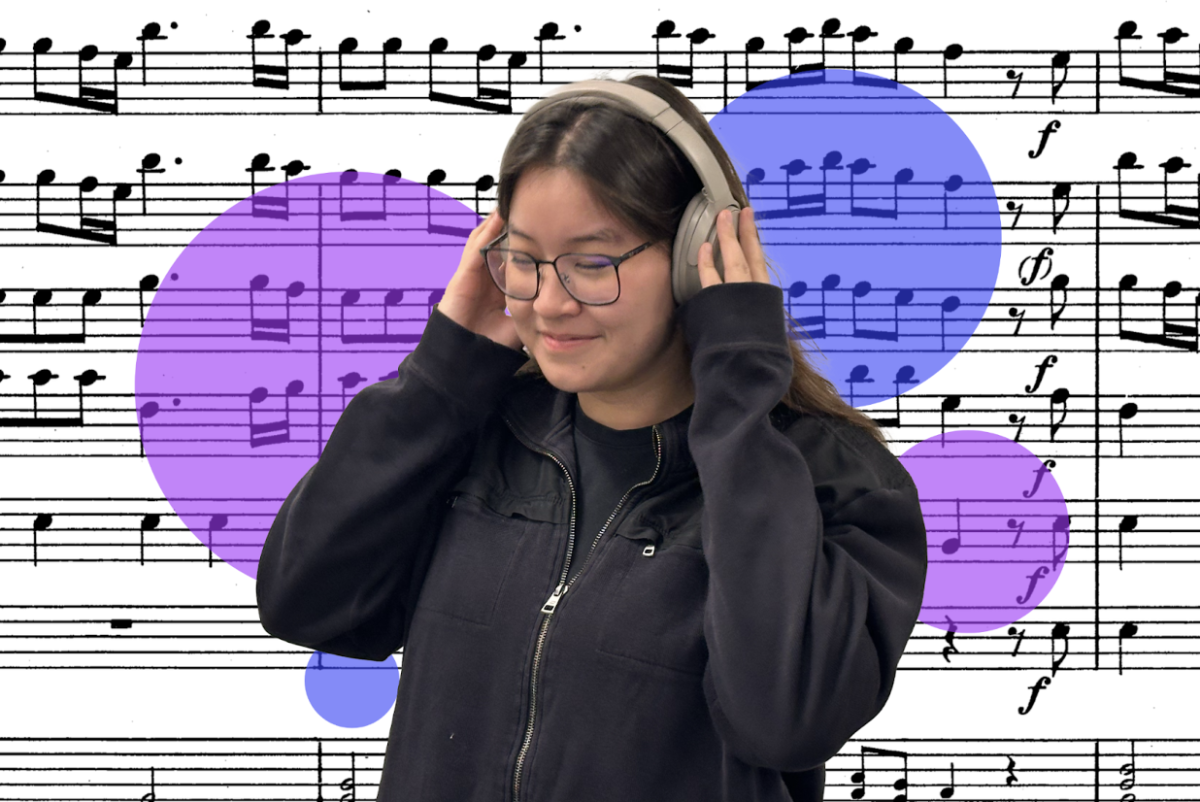
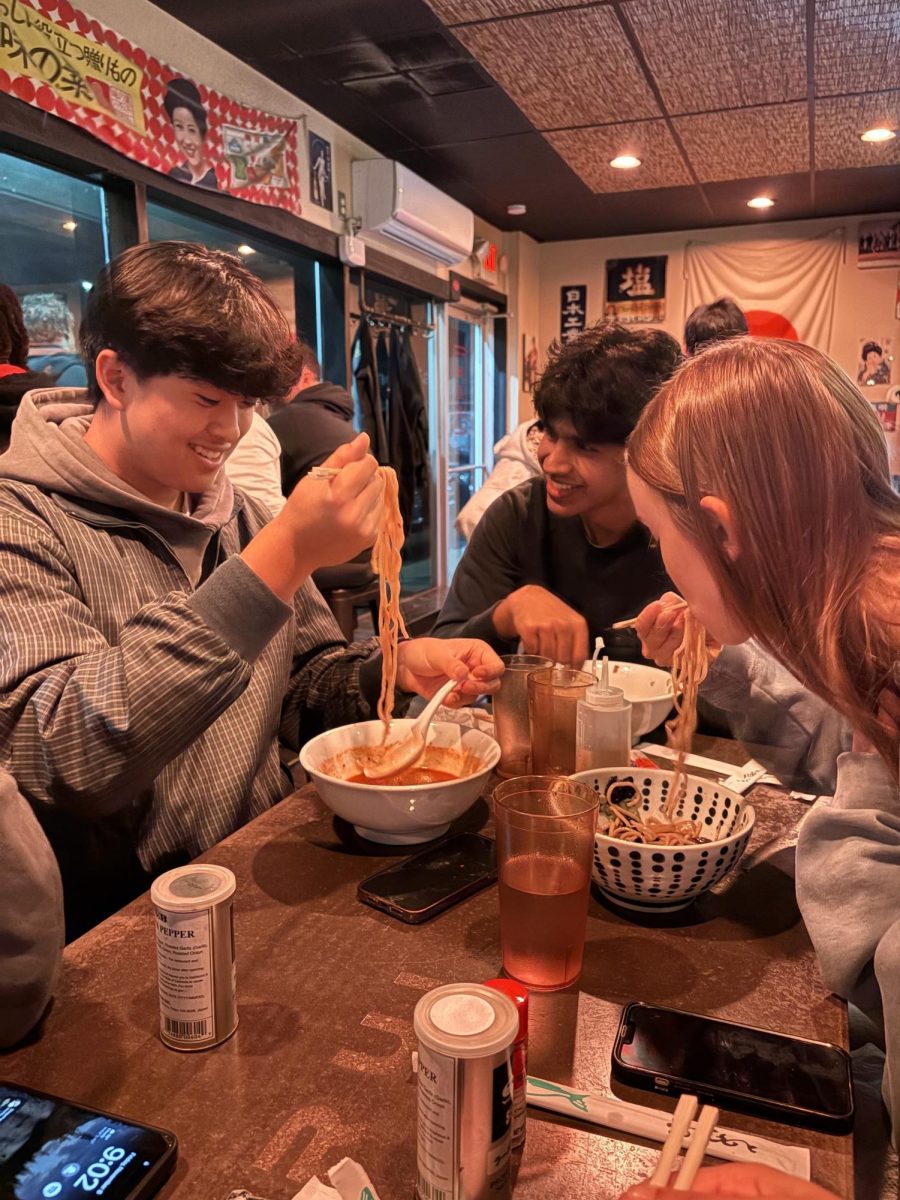
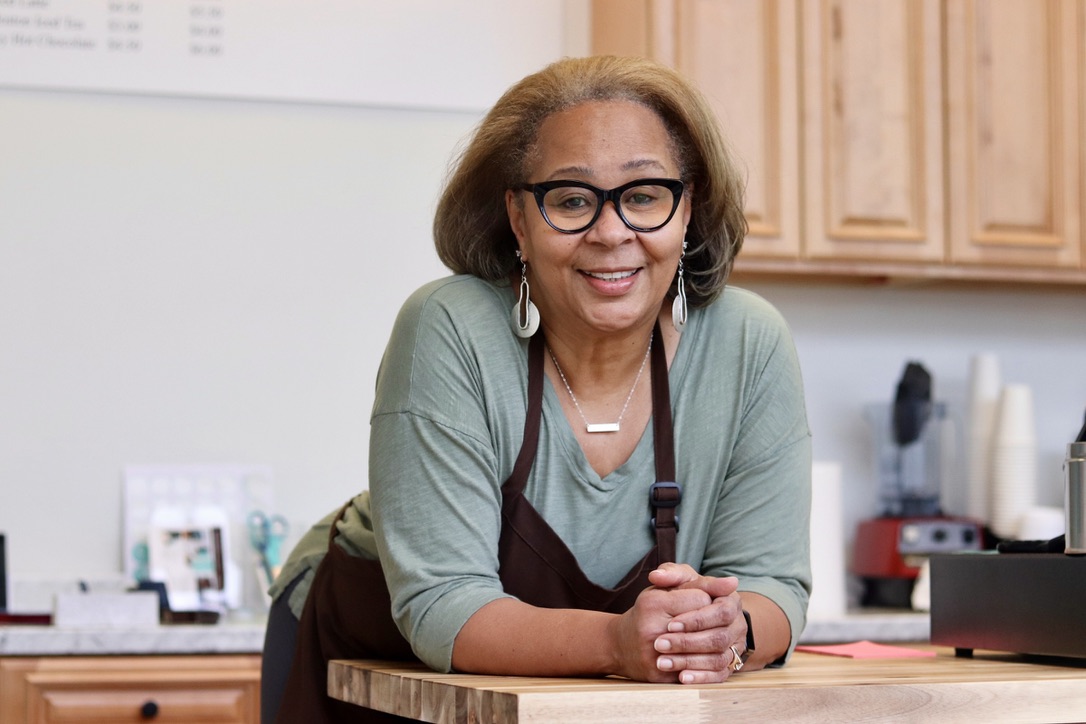

![Within the U.S., the busiest shopping period of the year is Cyber Week, the time from Thanksgiving through Black Friday and Cyber Monday. This year, shoppers spent 3.3 billion on Cyber Monday, which is a 7.3% year-over-year increase from 2023. “When I was younger, I would always be out with my mom getting Christmas gifts or just shopping in general. Now, as she has gotten older, I've noticed [that almost] every day, I'll open the front door and there's three packages that my mom has ordered. Part of that is she just doesn't always have the time to go to a store for 30 minutes to an hour, but the other part is when she gets bored, she has easy access to [shopping],” junior Grace Garetson said.](https://bestofsno.com/wp-content/uploads/2025/01/DSC_0249.JPG-1200x801.jpg)

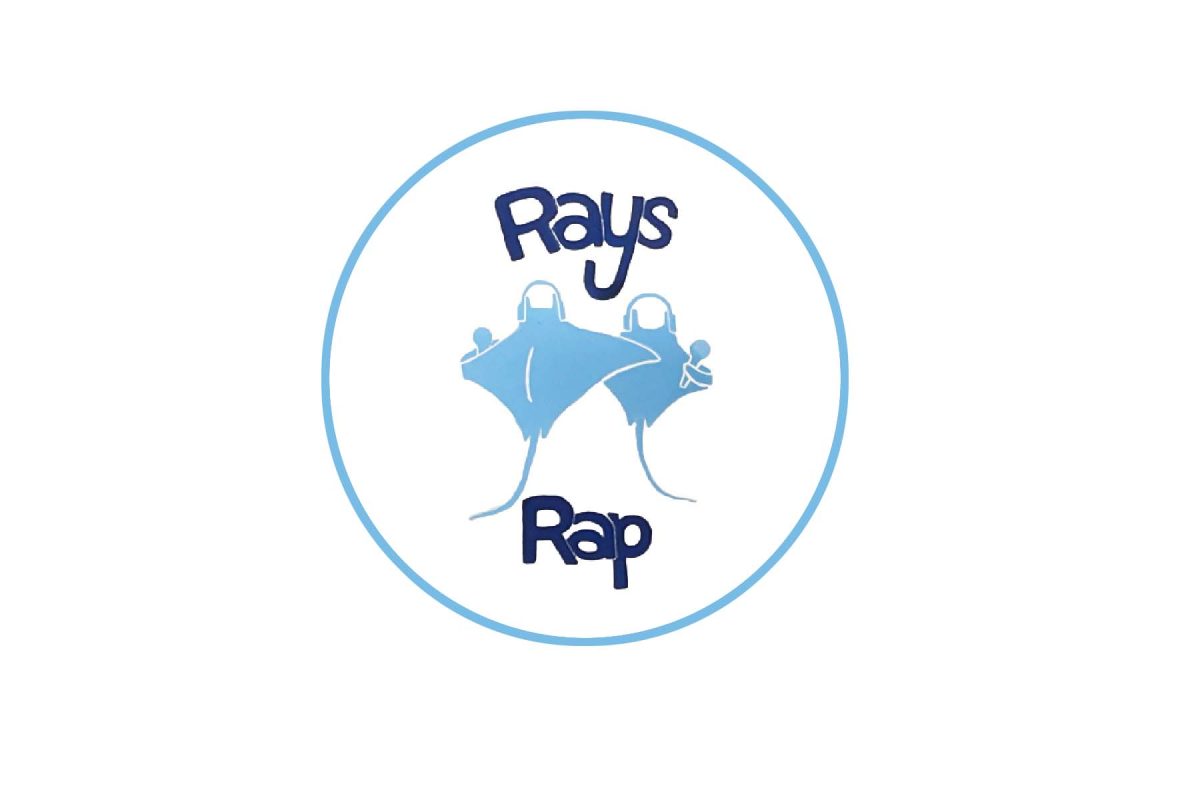
![French teacher Marieme Toure serves a plate of the Senegalese food she prepared for her AP French Language and Culture class, to senior Faiza Syed. “I never had Senegalese food before,” Syed said. “I thought it was so cool that she was able to bring a part of her culture [and] background to us.”](https://bestofsno.com/wp-content/uploads/2025/01/IMG_0798-1200x906.jpeg)


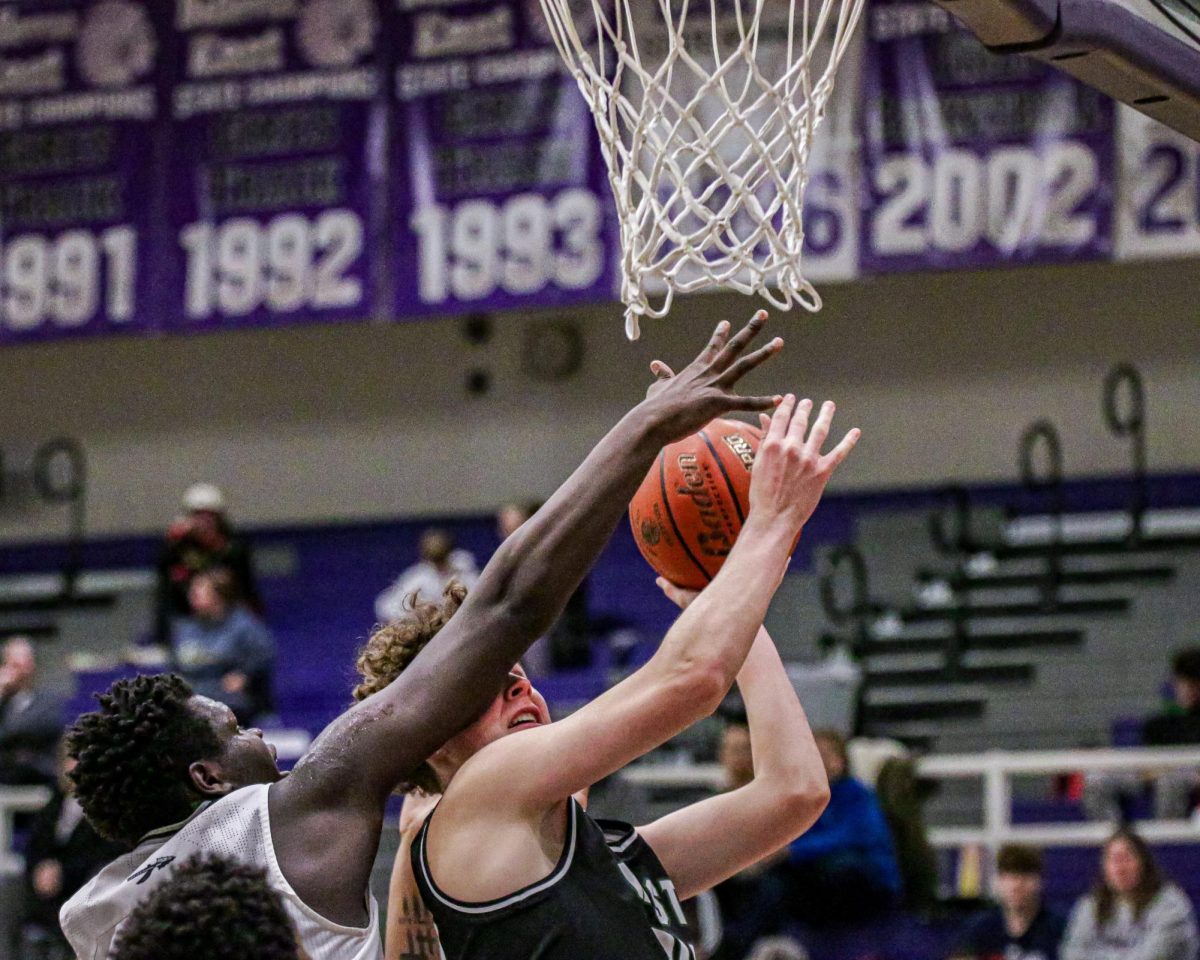


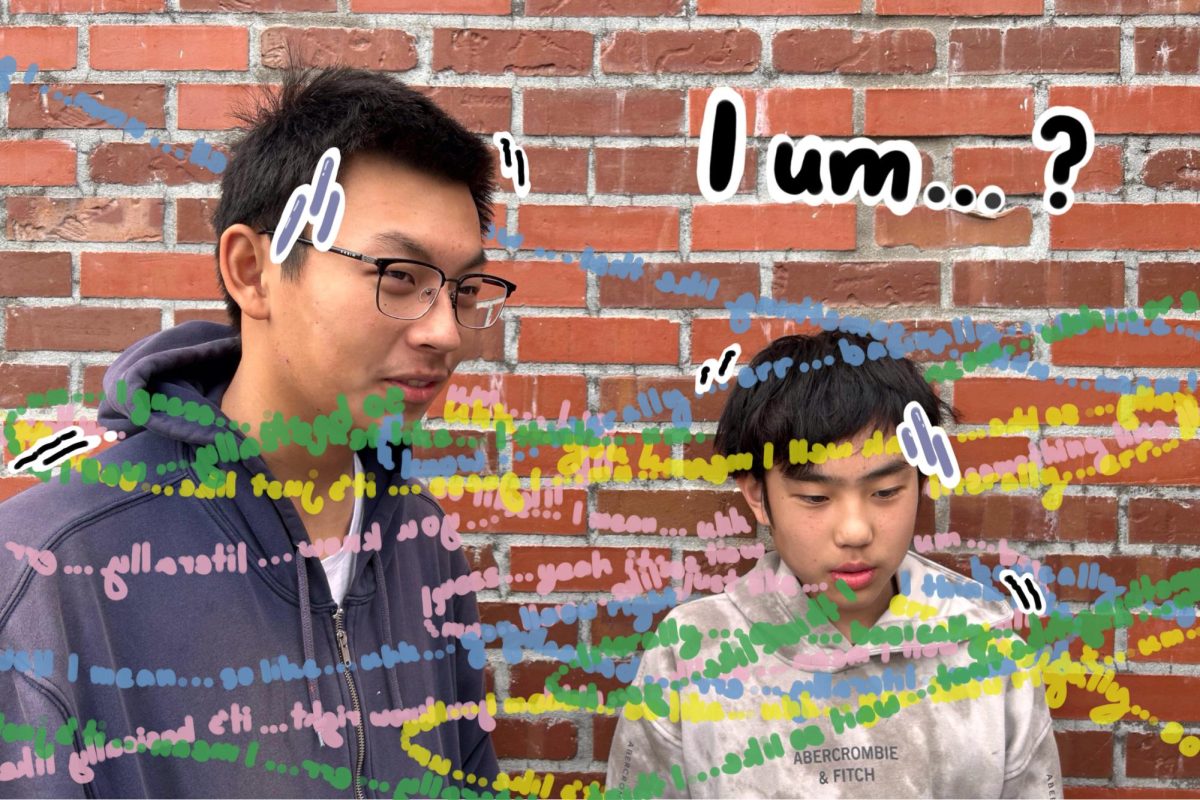
![NEW CHALLENGE, NEW TEAM MEMBERS: Every season, VEX creates a new game that robotics team members are faced with and have to build a robot to compete in. This year’s game forces students to create a robot that is able to stack rings onto mobile goals in order to score points. The change in games each season is something that robotics teacher Audrea Moyers appreciates.
“One of the things that I like about VEX is that they have a new problem to solve every year,” she said. ¨Even though the equipment’s the same, they have to analyze the game, and they have to come up with solutions that are unique that year. They are using their knowledge from prior years, but they have to kind of redesign a problem.”
As returning teams were faced a new game, some new teams and members had to adapt to a uncommon playing field and game.
“Three of our four teams were competing for the first time this year, and they had very different experiences match to match, so I think they learned a lot,¨ she said. ¨It’s hard just watching a video online to know how it’s actually going to be in person, so they all learned a lot about what gameplay is like, how to work with an alliance partner [and] how to adapt during the day to changes.”](https://bestofsno.com/wp-content/uploads/2024/12/IMG_9283-1-1200x800.jpg)
